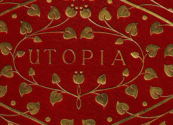Co-sponsored by the New York Open Center & the International Forum on Globalization
Vandana Shiva • Bill McKibben • Ralph Nader • Wes Jackson • Jerry Mander • Andy Kimbrell Winona La Duke • Helen Caldicott • Richard Heinberg • Helena Norberg-Hodge • Ralph White • Langdon Winner • Kirkpatrick Sale • Clive Hamilton • Severine von Tscharner-Fleming & others
*Please note that October 25th’s schedule will run from 10am-10pm and October 26th’s will be from 10am-6pm.
Forty-five leading scholars, authors and activists will convene at The Great Hall of Cooper Union for a public “teach-in” on the profound impacts — environmental, economic and social — of runaway technological expansion, the tendency to see technology as the savior for all problems, and on the urgent need to change directions, returning the welfare of Nature to the center of economic and social decision-making.
Speakers will include: Vandana Shiva, Bill McKibben, Ralph Nader, Wes Jackson, Jerry Mander, Andy Kimbrell, Winona La Duke, Annie Leonard, Richard Heinberg, Helena Norberg-Hodge, Langdon Winner, Kirkpatrick Sale, Clive Hamilton, Severine von Tscharner-Fleming and 30 others; plus films and workshops.
This event comes at a crucial moment. Ecological systems are near collapse — global climate, soils and fertility; fresh water supplies; deep ocean life, forests, biodiversity; global food production; and unprecedented rates of species extinctions. Human life is similarly threatened by expanding wars over scarce resources, unsustainable development, shocking rates of economic inequality, and increased alienation from the natural world. But proposed solutions rarely stray off-message: “Technology will solve our problems.”
We do not share this optimism.
Corporations see the situation as economic opportunity. New technologies are being rapidly rolled out to create substitute nature: Re-seeding the heavens to install artificial climates (geo-engineering); re-arranging the genetics of food (GMOs), animals and trees; inventing artificial life forms (“synthetic biology”), as well as new basic molecular structures (nanotechnology); introducing mass robotic production on farms and in factories (eliminating workers!); and marketing drones, driverless cars, Google glasses, app after app, and ever more instruments for cyber-envelopment of our consciousness and everyday lives. Did anyone ask for these? All are expressions of science in service to profit and growth. Meanwhile, human experience — now embedded within a global technological cocoon — is in danger of losing its awareness and connection with the natural world. This will not solve our problems.
What is needed is New Consciousness, and New Economic Strategies that break from the assumption of human dominion over nature and the planet (“anthropocentrism”), while reforming our economies toward renewing a balance with nature. Tweeting won’t save us. Alternative ideas, policies and programs will be presented and discussed in detail.
Location: Cooper Union, 7 East 7th St., New York, NY.
Scholarships available email: skasten@ifg.org
REGISTRATION AND FEES A CONFERENCE
Saturday, October 25, 10am–10pm
14FEC72S
$45 (No Discount) / $20 for seniors or students
Early Bird rate $35 by October 1
Click HERE to register for this single day.
Sunday, October 26, 10am–6pm
14FEC73S
$40 (No Discount) / $15 for seniors or students
Early Bird rate $30 by October 1
Click HERE to register for this single day.
Combined price $75 for both days
when registering for both at same time
14FEC74S (REGISTER ONLINE BELOW AT THIS PRICE)
Combined price $25 for seniors or students
when registering for both days at same time
14FEC75S
Click HERE to register for this special combined rate.
For further information, contact the International Forum on Globalization: www.ifg.org • 415.561.7650 • info@ifg.org


